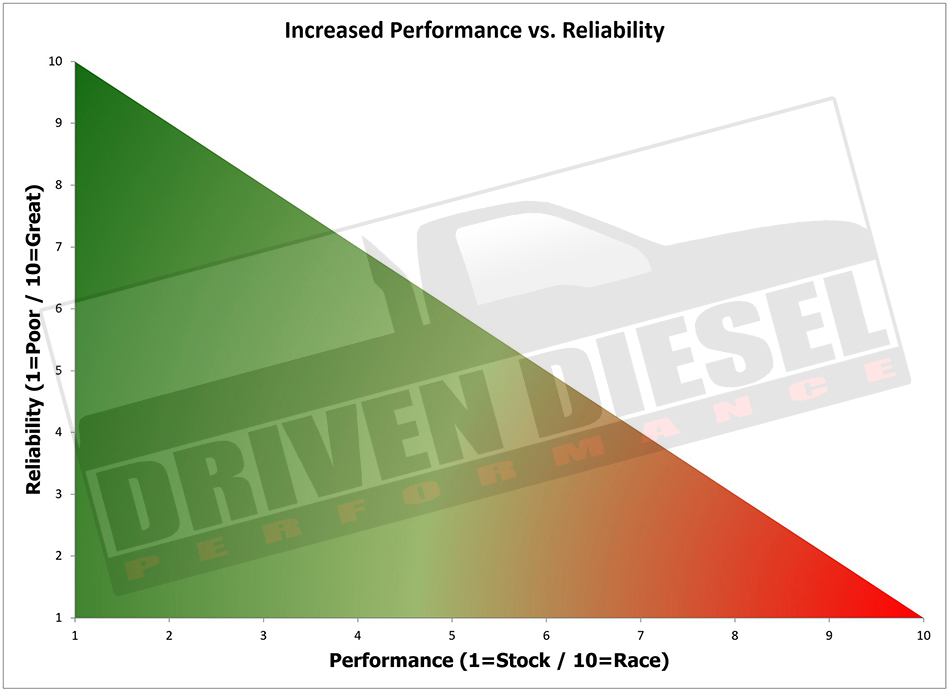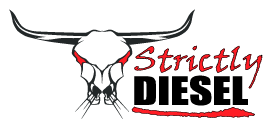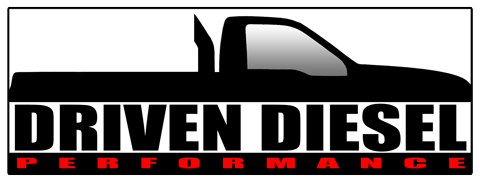 NOTE: Articles in this series were written in an order that might make "skipping around" confusing. If you didn't start at the beginning, you might want to CLICK HERE.
NOTE: Articles in this series were written in an order that might make "skipping around" confusing. If you didn't start at the beginning, you might want to CLICK HERE.There's a conversation that I must have had with different customers thousands of times by now over the last 20+ years, and as I've been working on these articles, it occurred to me that it might be worth putting it into writing. Since this specific set of articles is about fuel system design and product selection, this discussion will ultinmately be geared in that direction, but in reality I've applied the same concept to MANY different "Performance Modification" decision making situations. This conversation almost always starts out with a customer asking for my opinion between some different modifications they are thinking about ordering, whether it was turbochargers or injectors or fuel pumps. In most cases, the customer has already narrowed their decision down to a few possible choices, and they are seeking validation of their selections, or possibly a better selection they had not yet considered. In every case, my first answer to their question is always another question (or series of questions)...
• HOW IS YOUR TRUCK USED? (Daily Driver, Work Truck, Weekend Toy, Etc.)
• WHAT IS YOUR #1 PRIORITY/GOAL FOR MODIFICATIONS TO THIS TRUCK?
• HOW IMPORTANT IS RELIABILITY/DURABILITY/DEPENDABILITY?
• DO YOU HAVE ANOTHER VEHICLE TO DRIVE IF THIS ONE IS DOWN?
• DO YOUR ANSWERS TO ANY OF THE ABOVE QUESTIONS CONFLICT?
For example, if you said that it's a "Work Truck" and that Relilability is Very Important, but your #1 goal is to have a 600HP+ 7.3L, your answers are in conflict with each other and you may want to reconsider the direction you are taking.
While the internet forums, faceplace groups and magazines are great at promoting all kinds of ways to increase your horsepower and torque, they seldom contemplate the realities of whether these things are right for whoever they are being suggested for! This is because it is normal human nature for everyone that went before you to recommend the path they took, as if it was the best and sometimes only path possible (depending on the individual). Whether it's the brand or size of injectors, the tuner they used, their turbo choice or what fuel system they run...they are invested and convincing others to make the same choice they did is a form of validation. This doesn't mean that the advice is wrong, but if YOU have not clearly answered the questions above, it could be the wrong advice for YOUR particular needs.
In the case of my example, relying on a 7.3L as a daily driver and work truck isn't a problem. Wanting that truck to make 600HP+ while still being reliable (in the true sense of the word), regardless of who on the internet says they've done it, is an entirely different thing. It is conflicting goals like this that have caused many people to make purchase decisions that they later regretted, hopefully the following discussion will help you avoid that. This is not to say that the different "Recipes" floating around the internet for making XXXhp from your engine platform are a bad approach, I'm just suggesting that you consider multiple recipes and pick the one fits YOUR specific needs the closest.

I created the Relilability Chart (above) several years back to provide a visual representation of the impact that higher performance has on reliability. While this is meant as a simple "example", and the perfectly linear two-dimensional nature represented in this chart is not entirely accurate (because it leaves out a lot of factors), the general point remains...higher performance reduces reliability, and "Race" level performance shouldn't be considered reliable at all. If the vehicle you are working on needs to get you to work and/or your kids to school, reliability matters. If you hook up a trailer, pack up your family, and count on it to get you to your camp site and back without leaving all of you stuck on the side of the road, reliability matters. When it comes to selecting aftermarket products for your truck, it is important to have an accurate picture of just how much "Reliability Matters" to you, and to apply that priority when setting your ultimate performance goals and making your purchase decisions.
BIGGER IS NOT ALWAYS BETTER!
One of the most frequent places where I've seen the "Bigger Must Be Better" philosophy applied incorrectly is 7.3L and 6.0L fuel pumps. Customers will call us about problems with their FASS 220G+ pump, or their big Fuelab or Aeromotive pump, and when we ask about the rest of the performance mods on the truck, it isn't uncommon for them to be running injectors that are barely larger than stock. I've lost track of the number of times we've talked to customers that had spent a lot of money on a fuel pump system for a truck that could easily still be running the OEM fuel pump without missing a beat (especially 6.0L owners). OEM fuel pumps are built to last for a long time, based on the OEM warrany period, and more often than not they will outlive any aftermarket pump on the market, and be quieter while doing it. There are certainly situations where more pump volume is necessary, but even in those cases you need to consider your goals for the truck when choosing the pump system you are going to run. Purchasing a pump that too far exceeds your actual fuel flow needs doesn't just hurt your wallet, it could be the difference between a setup that is reliable and one that is problematic.
BILLET IS NOT ALWAYS BETTER!
Once you've determined that you need a larger than stock fuel pump, you still need to refer back to your answers to the questions at the top of this page. "Billet Race Pumps" (my general term for any of the high performance billet fuel pumps) all come with "Billet Race Reliability", meaning that you can't expect the same level of longevity and reliability as you did from your OEM fuel pump. While a number of the Billet pumps on the market have more than proved that they can run for a long time in a street truck application, OEM pumps will generally still outlive them, and they are usually quieter as well. This is why we offer BOTH a "Billet Race Pump" (Fuelab) or a "Dual OEM Pump" (Bosch) option in our in-house High Volume Fuel Pump Kits. Customers that are doing performance work while still trying to retain as much OEM-like realibility as possible will generally go for the Dual Bosch setup, and those that rank Performance over Reliability will generally lean toward the Fuelab pump. It's a choice that gets right back to the heart of the questions listed at the top of this page.
There are a few pumps on the market that aren't billet, but also aren't OEM. I will be covering the common ones in a later article discussing our fuel system flow bench work and fuel pump flow numbers. For this discussion, the most important thing to consider regarding any of these other pumps is whether their flow rating is appropriate for your particular needs (more flow than your injectors need, but not so much more that it creates other problems), whether or not they are rated to pump diesel fuel, and whether they carry a warranty if used with Diesel fuel.
BILLET FUEL TANK SUMPS
Since I'm on the topic of deciding between OEM and aftermarket fuel system components, another one that we field a lot of questions on is the fuel tank sump. Billet fuel tank sumps are one of the most popular ways to plumb the large fuel supply hose needed for larger than stock performance fuel pumps. The quality sumps on the market have certainly proven themselves with regard to durability (look for the videos by Beans Diesel on YouTube if you have any doubts), but there are still some factors to consider before installing one. Since the installation of a fuel tank sump will result in a large fuel hose exiting from the middle of the bottom of the fuel tank, how the vehicle is used is once again important. Trucks that see a lot of "Off-Road" duty, particularly ones that might become high-centered or drag the bottom of the vehicle across some kind of obstacle may not be the best candidates for sump installation. The same goes for trucks that sit very low to the ground where road debris (like an unavoidable tire tread) could cause damage. It's pretty clear that the fuel tanks and the sumps can handle a significant amount of abuse, but that unprotected fuel hose that is exiting the sump isn't going to be as tough, and damage to that hose could leave you stuck on the side of the road.
CONCLUSION:
None of this discussion was intended to scare you away from considering any of the performance parts discussed here. On the contrary, the point was to seriously consider the set of questions at the top of this page and to make sure you are making product choices that support your Vehicle Usage/Reliability Needs as much, if not more than they support your Horsepower Goals. I've never had an unhappy customer when they have applied this approach to choosing the modifications to their vehicle.

Author: Dennis Schroeder - Co-Owner of Strictly Diesel
Dennis has been Designing, Building and Supporting Aftermarket Fuel Systems for 7.3L and 6.0L Powerstrokes since 2001.


